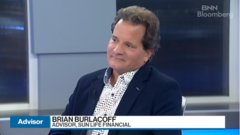Nov 27, 2017
Teal Linde's Top Picks: November 27, 2017
BNN Bloomberg
Teal Linde, portfolio manager and publisher of the Linde Equity Report
FOCUS: North American large and mid-caps
_______________________________________________________________
MARKET OUTLOOK
U.S. stock markets, which typically drive global markets, have been showing strong and consistent performance throughout 2017. For example, the S&P 500 is in the midst of a seven-month winning streak, which may become eight in November. When markets have delivered such consistent strength in the past, investment gains typically continue for at least another nine months.
However, a potential counterbalance to this momentum is the historically high level of valuation in the current market. For the median stock, many valuation metrics are at or near record highs. High valuations are more evenly distributed across various stocks and sectors today than they were during the market peaks reached in 2000 or 2007, when high valuations were more concentrated in a few sectors.
When valuations are high, investors have to be increasingly selective. Yet this runs counter to and underscores the danger in the current trend towards passive ETF investing, where investors are buying stocks almost indiscriminately, with little to no regard for valuation. Broad-based heightened valuations make finding reasonably-valued securities more challenging. Consequently, succeeding as a stock investor today requires selecting stocks where one places greater emphasis on a company’s long-term risk adjusted potential. This in turn requires analyzing the more qualitative areas of a company, such as business model, competitive advantages, and market potential. In a market where most investors are concerned with the next quarter, investors who can presciently predict how a company is going to perform in three to five years stand to be the real winners.
TOP PICKS
FACEBOOK (FB.O)
Facebook’s growth strategy is straight forward: build the user base, increase engagement and then monetize. The company is increasingly creating a “walled garden” or “closed city” by offering additional services and conveniences that give people less and less reason to ever leave their Facebook world. More recently, the company is investing heavily in video with its “video-first” strategy. Founder Mark Zuckerberg has directed the company to weave video across all of its products. “I see video as a mega trend on the same order as mobile,” said Zuckerberg. He wants Facebook to not only be your source for news and updates from friends, but also a source of entertainment. Facebook is expected to grow revenues and EPS by 45 per cent and 38 per cent respectively in 2017. Facebook trades at 31x 2017 expected EPS. Last purchased on November 7, 2017 at US$180.01.
TIDEWATER MIDSTREAM & INFRASTRUCTURE (TWM.TO)
Headquartered in Calgary, Tidewater’s main focus is offering natural gas processing services, which are becoming increasingly infrastructure intensive (and thereby offering greater growth opportunities) due to the liquids rich gas, which is more valuable than dry gas, coming out of today’s much deeper gas wells. As a relatively new and smaller company with a $490 million market cap, Tidewater trades at a significant discount to its peer group. On an enterprise value (market cap + debt)/EBITDA, Tidewater trades at a 50 per cent valuation discount to its peers, which include Enbridge Income Fund, Pembina, Inter Pipeline, AltaGas, Keyera and Veresen. Tidewater’s EV/EBITDA multiple of 7x compares to a peer average of 14x EV/EBITDA. As a relatively new company, Tidewater also has a much healthier and still underutilized balance sheet (0.9 Net Debt/EBITDA 2018E vs peer average of 4.9x).
Tidewater’s debt/total capital is 14 per cent compared to the peer average of 50 per cent. Tidewater also has the lowest dividend payout ratio among its peer group, yet it still offers a dividend yield of 2.7 per cent. Management is retaining more of its cash to fund its double-digit growth plans. The lower valuation, lower debt levels and lower payout ratio all contribute to share price upside for this early stage mid-stream company. On November 1, the company announced sanctioning of its 100 MMcf/day Pipestone Montney sour deep cut natural gas gathering and 20,000 boed natural gas liquids processing complex with two anchor five year take-or-pay contracts. At a $210 million gross capital cost, or around 40 per cent of current market cap, the Pipestone project is considered transformational for the company. Last purchased on November 24, 2017 at $1.51.
AMC ENTERTAINMENT (AMC.N)
Through recent acquisitions, and an increased debt load, AMC has become the largest movie theatre exhibitor in the U.S. and Europe with over 10,000 screens across 900 theatres. Movie theatre stocks have been hit hard due to a weak Q2 and Q3 box office. The falling share prices have spurred many in the media to wonder if the movie theatre is dead. It is common for investors to extrapolate events of the most recent past into the future. However, in this case, such extrapolation seems unfounded. Since 2000, attendance at movie theatres in the U.S. has fallen about one per cent per year. Ticket prices have risen about two to three per cent per year. 2011 was a weak year for the box office, but viewership bounced back in 2012 and 2013. 2014 was another weak year, but then 2015 and 2016 were both record years in terms of revenue for the box office.
One year later in 2017, box office ticket sales have slumped again. In the same way that the box office bounced back in 2011 and 2014, we expect the same in 2018. In an industry where movie theatre viewing habits change very slowly, it seems highly improbable that after a record year in 2016, the industry would suddenly find itself in permanent despair just one year later. With AMC’s stock down 60 per cent YTD, reversion to the mean is the main strategy behind this contrarian stock pick. Other than reversion to the mean, the AMC has other levers it plans on considering in 2018, including adding a $1 surcharge to Friday and Saturday night tickets, adding a 10 per cent premium to blockbuster films, theatre-style pricing where a premium is charged for the best located seats, selling movie-related merchandise in the theatre, and IPOing AMC’s European division to pay down debt. In Europe, movie theatre chains are doing just fine. Last purchased on November 24, 2017 at US$13.58.
| DISCLOSURE | PERSONAL | FAMILY | PORTFOLIO/FUND |
|---|---|---|---|
| FB | Y | Y | Y |
| TWM | Y | N | Y |
| AMC | Y | N | Y |
PAST PICKS: NOVEMBER 28, 2016
FACEBOOK (FB.O)
Facebook continues to increase the supply of its ads for advertisers. Yet despite the rising supply, the price of its ads is still going up!
- Then: $120.41
- Now: $182.16
- Return: 51.28%
- Total return: 51.28%
ALPHABET (GOOGL.O)
- Then: $785.79
- Now: $1,064.04
- Return: 35.41%
- Total return: 35.41%
FIVE BELOW (FIVE.O)
Legendary fund manager Peter Lynch used to follow his wife and kids to the mall to find investment ideas. He looked for the popular stores they liked to shop at. I discovered Five Below in a similar manner during a trip to North Carolina. Doing the tourist thing, my brother-in-law, Andy, took me and my wife and our kids to check out this store for kids that does not exist in Canada which he thought we would enjoy. The store was Five Below. Bingo!
- Then: $40.26
- Now: $58.79
- Return: 46.02%
- Total return: 46.02%
TOTAL RETURN AVERAGE: 44.23%
| DISCLOSURE | PERSONAL | FAMILY | PORTFOLIO/FUND |
|---|---|---|---|
| FB | Y | Y | Y |
| GOOGL | Y | Y | Y |
| FIVE | Y | Y | Y |
WEBSITE: www.lindeequity.com













